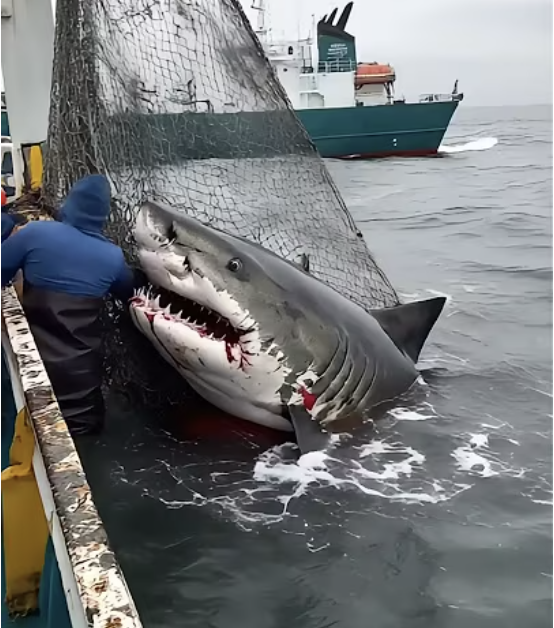
In the azure waters off South Africa’s coast, marine biologists led by Dr. Emily Carter raced to save a great white shark entangled in discarded fishing nets. Reported by a local fisherman, the shark’s sluggish movements signaled its deteriorating state. As the research vessel approached the coordinates, tension mounted. Dr. Carter, an expert in shark behavior, reminded her team, “We’re here to help, not harm.”
The shark, nearly four meters long, was found with deep wounds from the netting. Launching a dinghy, the team approached cautiously, using cutters and poles. The shark remained still, as if sensing their mission. Each careful slice of netting brought them closer to success.
Suddenly, with a burst of energy, the shark thrashed violently. The dinghy rocked, chaos erupting—then calm. The shark circled the team slowly, as if acknowledging their help, before vanishing into the deep.
Back on board, joy and relief filled the air. Dr. Carter looked out at the sea, feeling deeply connected to the wild. The rescue was a testament to compassion, resilience, and the quiet understanding between humankind and the ocean’s creatures.